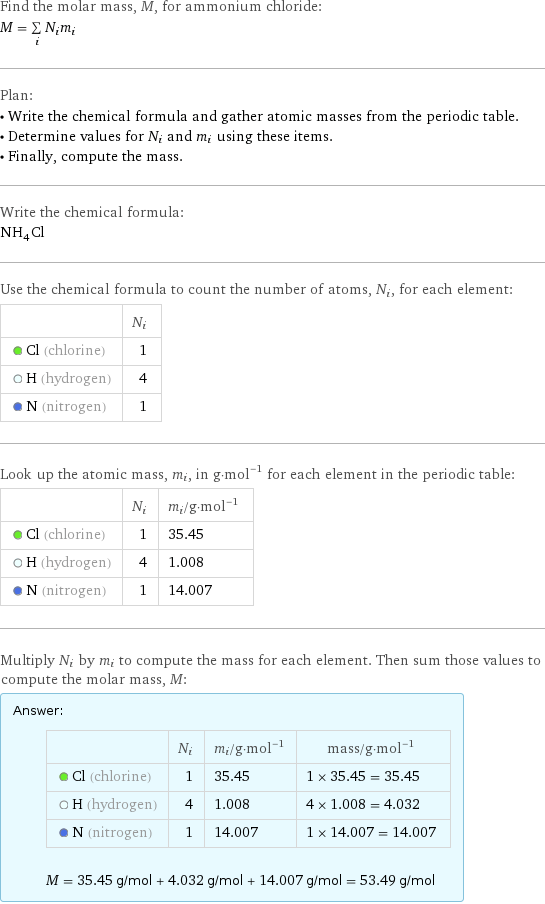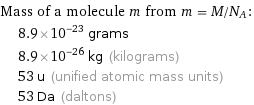Input interpretation

ammonium chloride | molar mass
Result

Find the molar mass, M, for ammonium chloride: M = sum _iN_im_i Plan: • Write the chemical formula and gather atomic masses from the periodic table. • Determine values for N_i and m_i using these items. • Finally, compute the mass. Write the chemical formula: NH_4Cl Use the chemical formula to count the number of atoms, N_i, for each element: | N_i Cl (chlorine) | 1 H (hydrogen) | 4 N (nitrogen) | 1 Look up the atomic mass, m_i, in g·mol^(-1) for each element in the periodic table: | N_i | m_i/g·mol^(-1) Cl (chlorine) | 1 | 35.45 H (hydrogen) | 4 | 1.008 N (nitrogen) | 1 | 14.007 Multiply N_i by m_i to compute the mass for each element. Then sum those values to compute the molar mass, M: Answer: | | | N_i | m_i/g·mol^(-1) | mass/g·mol^(-1) Cl (chlorine) | 1 | 35.45 | 1 × 35.45 = 35.45 H (hydrogen) | 4 | 1.008 | 4 × 1.008 = 4.032 N (nitrogen) | 1 | 14.007 | 1 × 14.007 = 14.007 M = 35.45 g/mol + 4.032 g/mol + 14.007 g/mol = 53.49 g/mol
Unit conversion

0.05349 kg/mol (kilograms per mole)
Comparisons

≈ ( 0.074 ≈ 1/13 ) × molar mass of fullerene ( ≈ 721 g/mol )

≈ 0.28 × molar mass of caffeine ( ≈ 194 g/mol )

≈ 0.92 × molar mass of sodium chloride ( ≈ 58 g/mol )
Corresponding quantities

Mass of a molecule m from m = M/N_A: | 8.9×10^-23 grams | 8.9×10^-26 kg (kilograms) | 53 u (unified atomic mass units) | 53 Da (daltons)

Relative molecular mass M_r from M_r = M_u/M: | 53